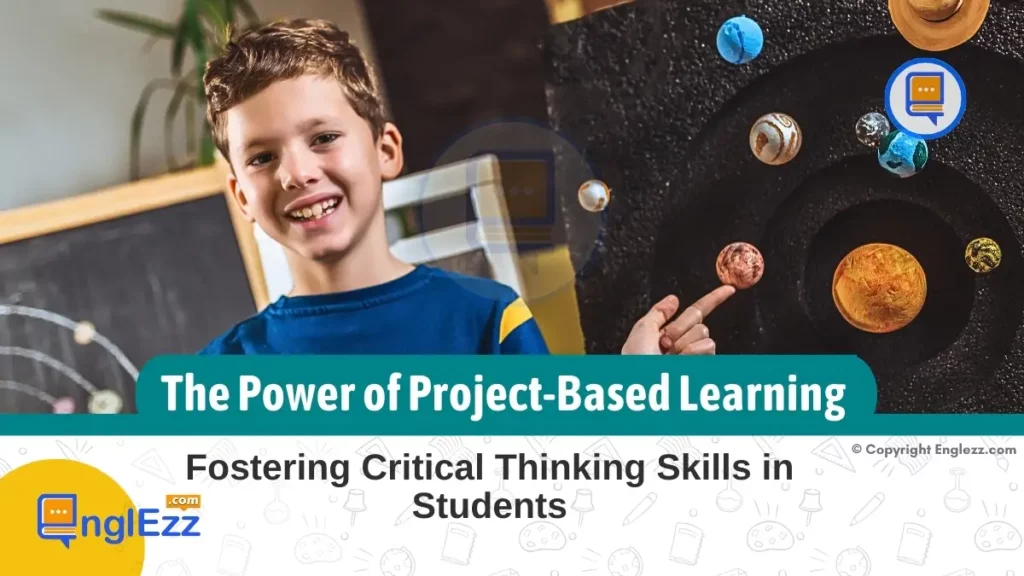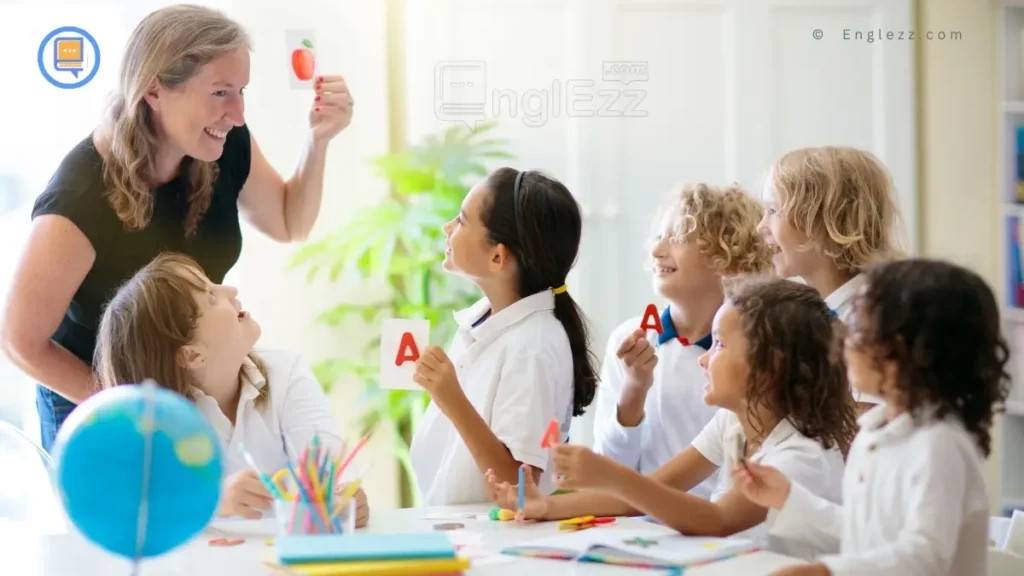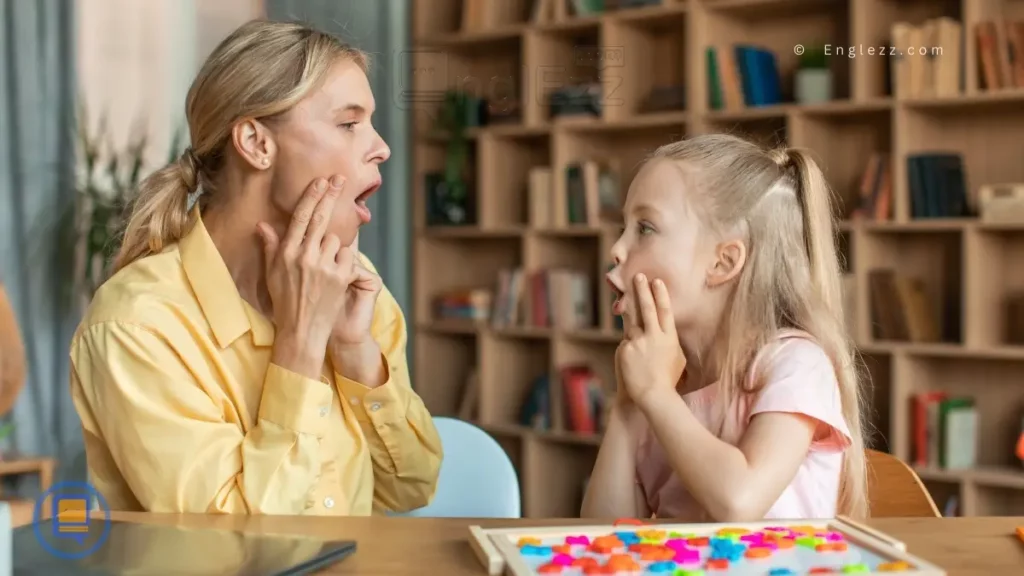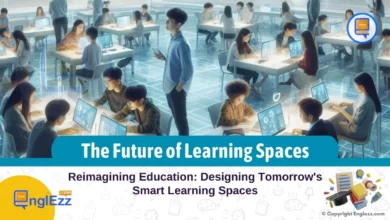In the realm of modern education, where the cultivation of critical thinking skills stands as a fundamental pillar of intellectual growth and academic excellence, a profound understanding emerges regarding the pivotal role such skills play in shaping informed and adept individuals. Foster critical thinking skills in students through project-based learning. Experience the transformative impact of this innovative approach.
The ability to analyze complex information, evaluate different perspectives with acumen, and solve intricate problems is not merely desirable but essential for navigating the challenges of an ever-evolving society. As educators, school administrators, and curriculum developers seek innovative methods to nurture these cognitive competencies in students, the spotlight falls upon a pedagogical approach that transcends conventional classroom paradigms: Project-Based Learning (PBL).
Table of Contents
- The Power of Project-Based Learning In Fostering Critical Thinking Skills In Students
- Understanding Critical Thinking Skills
- What Is Project-Based Learning (PBL)?
- Key principles of Project-Based Learning
- Benefits of Project-Based Learning for Students
- Implementation Strategies for Educators in Project-Based Learning
- Integrating PBL into Curriculum
- Assessing Student Learning In PBL
- Critical Thinking In PBL Contexts
- Project-based Learning Initiatives
- Overcoming Challenges in Implementing Project-Based Learning
- Impact of Project-Based Learning on Student Engagement
- Maximizing Critical Thinking Skills Through Project-Based Learning
- Final Tips
- Enhancing Critical Thinking Through Project-Based Learning
- FAQs
- 1. How can educators assess critical thinking skills within project-based learning environments?
- 2. Is project-based learning suitable for all subjects and grade levels?
- 3. Can project-based learning initiatives be effectively integrated into existing curriculum frameworks without compromising educational standards?
- 4. What role does collaboration play in enhancing critical thinking skills through project-based approaches?
- 5. How do educators overcome challenges related to resource constraints when implementing project-based learning?
The Power of Project-Based Learning In Fostering Critical Thinking Skills In Students
Amidst this dynamic educational landscape teeming with diverse instructional methodologies, the allure of project-based learning shines brightly as a beacon illuminating pathways toward enriched critical thinking development among learners. By immersing students in multifaceted projects that demand engagement with real-world dilemmas and multifarious scenarios, PBL presents itself as an avenue through which academic concepts seamlessly blend with practical applications, fostering a holistic understanding that transcends rote memorization or passive absorption.
Within this context lies the transformative potential of project-based learning to enhance deep learning experiences by bridging theoretical knowledge acquisition with hands-on problem-solving opportunities that kindle cognitive dexterity and analytical prowess within students’ minds.
Understanding Critical Thinking Skills
Critical thinking is a fundamental skill that allows individuals to analyze information objectively, evaluate different perspectives, and solve complex problems effectively. In the educational context, critical thinking plays a crucial role in preparing students to navigate the challenges of the modern world. By cultivating critical thinking skills, educators empower students to become independent learners who can think critically about various issues and make informed decisions based on evidence and logical reasoning.
The components of critical thinking encompass several key elements. Analysis involves breaking down information into its constituent parts to examine its underlying structure and implications. Evaluation requires students to assess the credibility and relevance of information or arguments presented to them. Problem-solving is integral to critical thinking as it involves identifying challenges, brainstorming solutions, and selecting the most appropriate course of action based on reasoned judgment.
For instance, when students engage in a project-based learning activity where they have to research a real-world problem, such as designing a sustainable urban environment, they are prompted to critically analyze data, evaluate potential solutions from diverse perspectives, and collaboratively problem-solve with their peers. Through this process, students not only deepen their understanding of core concepts but also develop practical skills that are transferable beyond the classroom setting. Such experiences strengthen their ability to think critically in various contexts and enhance their overall cognitive flexibility.
What Is Project-Based Learning (PBL)?
The concept of Project-Based Learning (PBL) represents a pedagogical approach that emphasizes students’ active involvement in authentic, real-world projects to foster critical thinking skills. PBL stands out from traditional classroom methods by shifting the focus from passive reception of knowledge to active engagement in problem-solving and inquiry-based activities.

In a PBL setting, students are presented with complex, open-ended problems or challenges that require them to analyze information critically, evaluate various perspectives, and develop creative solutions. By immersing students in hands-on projects that mirror professional scenarios or societal issues, PBL serves as a bridge between theoretical learning and practical application.
Key principles of Project-Based Learning
Key principles of Project-Based Learning encompass the promotion of inquiry-driven learning, collaboration among peers, and the integration of multiple disciplines. Through structured project design, educators can guide students through a process that involves defining objectives, conducting research, making decisions based on evidence, and presenting findings or solutions. For instance, a science project where students investigate environmental factors affecting local ecosystems not only cultivates scientific inquiry skills but also prompts critical thinking about sustainability and biodiversity conservation efforts. By contextualizing learning within meaningful projects relevant to students’ lives and communities, PBL enables learners to see the direct impact and application of their acquired knowledge.
In essence, project-based approaches like PBL provide a framework for nurturing critical thinking skills by challenging students to think analytically, strategically solve problems collaboratively, and communicate effectively within a real-world context. This method goes beyond rote memorization by encouraging deep understanding through experiential learning experiences.
Ultimately, the fusion of critical thinking development with practical application in PBL equips students with essential skills required for success in an increasingly complex and dynamic world where adaptability and innovation are paramount.
Benefits of Project-Based Learning for Students
Project-Based Learning (PBL) offers a wealth of benefits for students by bridging the gap between theoretical knowledge and practical application. Through engaging in real-world projects, students can deepen their understanding of academic concepts by actively applying them to authentic scenarios. For instance, in a biology class, students might investigate local environmental issues and propose solutions through collaborative projects. By immersing themselves in such hands-on tasks, learners not only grasp scientific principles but also develop critical thinking skills as they analyze data, evaluate potential solutions, and communicate their findings effectively.
Moreover, PBL nurtures crucial problem-solving abilities among students. When tasked with solving complex problems within project-based activities, learners are prompted to think critically about challenges and devise creative solutions. For example, in a history class focusing on World War II, students could engage in a simulation where they must navigate diplomatic negotiations during the wartime era. This exercise prompts learners to analyze historical contexts, consider multiple perspectives, and make informed decisions—a process that hones their problem-solving skills while fostering critical thinking competencies essential for academic success and future endeavors.
By immersing students in project-based experiences that demand critical thinking throughout the process—from planning to execution—educators can cultivate individuals who not only possess strong subject knowledge but also excel at synthesizing information, drawing connections across disciplines, and approaching challenges with innovative strategies. Thus, integrating project-based learning into educational curricula becomes not just a method of instruction but a gateway to nurturing holistic learners equipped with the cognitive tools necessary for lifelong learning and professional success.
Implementation Strategies for Educators in Project-Based Learning
Effective implementation of project-based learning (PBL) requires careful planning and strategic design by educators to ensure that students are engaged in meaningful and intellectually stimulating experiences. To design impactful PBL experiences, educators should start by clearly defining the learning objectives and aligning them with curriculum standards. For instance, in a science class studying environmental conservation, an educator could design a project where students research local environmental issues and propose solutions, thereby integrating critical thinking skills with scientific knowledge. By establishing clear objectives tied to academic standards, educators can ensure that PBL experiences are both enriching and educationally relevant.
Integrating PBL into Curriculum
Integrating PBL into existing curriculum frameworks while meeting educational standards can be achieved through interdisciplinary approaches that connect various subject areas within a single project. For example, a history teacher collaborating with an English teacher could develop a project where students create a multimedia presentation on a historical event, requiring them to analyze primary sources critically and communicate their findings effectively.

By merging disciplines in this manner, educators not only enhance student engagement but also demonstrate how critical thinking skills are transferable across subjects. This interdisciplinary integration not only reinforces the importance of diverse perspectives but also showcases the interconnectedness of knowledge domains within real-world contexts.
Furthermore, educators need to provide scaffolding and support throughout the PBL process to help students navigate challenges and stay on track with their projects. Incorporating checkpoints or milestones within the project timeline allows for formative feedback opportunities, enabling students to reflect on their progress and make necessary adjustments.
Offering resources such as research materials, technological tools, or guest speakers can also enrich the learning experience and empower students to delve deeper into their projects. By creating a supportive environment that encourages exploration and inquiry, educators can nurture students’ critical thinking skills while promoting creativity and self-directed learning within the framework of project-based activities.
In conclusion, by implementing well-designed strategies that focus on clear objectives, interdisciplinary connections, scaffolded support, and resource provision, educators can effectively integrate project-based learning into their classrooms while fostering critical thinking skills in students. Embracing these implementation strategies not only enhances student learning outcomes but also cultivates a culture of intellectual curiosity and innovation within educational settings. Ultimately, by leveraging project-based approaches thoughtfully and purposefully, educators play a pivotal role in unlocking the power of critical thinking skills among students in diverse academic contexts.
Assessing Student Learning In PBL
Assessing student learning in project-based environments poses unique challenges and opportunities for educators aiming to measure critical thinking skills effectively. Unlike traditional assessment methods that often rely on standardized tests or quizzes, evaluating critical thinking within the context of project-based learning (PBL) requires a more nuanced approach.
Educators must design assessment strategies that align with the complex problem-solving tasks students encounter during PBL activities. For instance, assessing how students analyze information, synthesize ideas, and make informed decisions based on evidence gathered throughout a project can provide valuable insights into their critical thinking abilities.
Critical Thinking In PBL Contexts
One challenge educators face when assessing critical thinking in PBL contexts is ensuring that evaluations are holistic and reflect the multifaceted nature of this skill set. Simply assigning grades based on final project outcomes may not capture the entirety of students’ critical thinking development during the process. To address this challenge, incorporating formative assessments at various stages of a project can offer a more comprehensive view of how students engage with complex problems and refine their critical thinking skills over time. By providing feedback during different project milestones, educators can guide students towards deeper levels of analytical thinking and reflective practice.
On the flip side, assessing critical thinking skills in project-based environments also presents opportunities for educators to observe student growth in real-world problem-solving scenarios. Instead of focusing solely on correct answers or predetermined solutions, assessments in PBL settings can emphasize process-oriented evaluation, where students’ ability to think critically, collaborate effectively, and adapt to challenges becomes measurable indicators of success. By creating rubrics that highlight these essential components of critical thinking within projects, educators can encourage students to engage meaningfully with the material while demonstrating their mastery of key cognitive skills crucial for success in today’s dynamic world.
Collaborative Learning
Collaborative learning lies at the heart of project-based approaches, serving as a catalyst for fostering critical thinking skills among students. By engaging in group projects that require active participation and shared decision-making, learners are challenged to consider diverse perspectives, analyze differing viewpoints, and synthesize ideas into cohesive solutions.
Through collaboration, students not only deepen their understanding of subject matter but also develop vital interpersonal skills essential for success in academic and professional settings. For instance, when tasked with a real-world problem in a group setting, students must negotiate competing ideas, communicate effectively to reach consensus, and allocate responsibilities based on individual strengths – all of which contribute to the cultivation of critical thinking abilities.
Project-based Learning Initiatives
Project-based learning initiatives provide an ideal platform for students to hone their teamwork and communication skills while addressing complex challenges collaboratively. In a science project where students are designing an eco-friendly solution for waste management in their community, each team member might bring a unique perspective based on their research or experiences. As they work together to brainstorm ideas, conduct experiments, and present findings, they learn to value diverse opinions and leverage collective knowledge to arrive at innovative solutions.
This collaborative process not only enhances critical thinking by encouraging thoughtful analysis and evaluation of various options but also nurtures empathy and respect for differing viewpoints – crucial elements in developing well-rounded individuals capable of navigating the complexities of the modern world.

Through collaborative learning experiences embedded within project-based frameworks, students are not just passive recipients of knowledge but active participants in constructing meaning through dialogue and interaction. By engaging in discussions with peers, offering constructive feedback, and jointly refining their project outcomes, learners internalize the value of critique as a tool for continuous improvement. Moreover, collaboration fosters an environment where students feel empowered to take risks in exploring unconventional solutions while receiving support from their team members – thus nurturing creativity alongside critical thinking skills.
Ultimately, project-based approaches underscore the transformative power of cooperative learning in shaping individuals who can navigate ambiguity with confidence and approach complex problems with analytical rigor.
Overcoming Challenges in Implementing Project-Based Learning
Integrating project-based learning (PBL) into traditional educational environments is a transformative endeavor that can face several challenges. Educators often find themselves navigating impediments such as time constraints, limited resources, and the complexities of assessing student performance within a PBL framework. Time management emerges as a primary concern, as crafting engaging projects that align with curriculum goals while ensuring adequate time for completion can be demanding. Balancing the requirements of covering content alongside facilitating open-ended exploration in projects poses a delicate challenge for educators seeking to implement PBL effectively.
Resources also play a crucial role in the successful execution of project-based learning initiatives. From securing materials for hands-on activities to accessing technology platforms for collaborative work, educators must creatively address resource limitations to provide enriching learning experiences for students. Furthermore, assessing student outcomes presents complexities within PBL settings, where traditional forms of evaluation may not adequately capture the depth of critical thinking skills developed through project work. Crafting assessment strategies that authentically reflect students’ problem-solving abilities and analytical thinking becomes paramount yet challenging within PBL environments.
To navigate these challenges effectively, educators can employ various strategies tailored to address each obstacle. Time management can be optimized through careful planning and prioritization of learning objectives, ensuring that projects align with instructional goals without becoming overly burdensome in terms of duration. Strategically leveraging available resources and seeking partnerships within the community or online platforms can mitigate constraints related to funding or material access, enhancing the quality of PBL experiences for students.
Additionally, adopting alternative assessment methods such as portfolios, peer evaluations, or self-assessments can offer holistic insights into student learning outcomes beyond quantitative measures, better capturing the multifaceted development fostered by project-based approaches. By proactively addressing these challenges and implementing innovative solutions, educators can harness the full potential of project-based learning to cultivate critical thinking skills effectively in their students.
Impact of Project-Based Learning on Student Engagement
Project-Based Learning (PBL) has been shown to significantly enhance student motivation and engagement with course material, leading to deeper learning experiences. Unlike traditional classroom settings where students may passively receive information, PBL immerses learners in real-world scenarios that require active participation and critical thinking. Research studies have consistently demonstrated the positive impact of project-based approaches on student outcomes, showing marked improvements in retention rates and overall academic performance.
For example, a recent study by Smith et al. (2020) compared the engagement levels of students participating in a project-based science program versus those following a traditional curriculum. The results indicated that students involved in project-based activities showed higher levels of interest, enthusiasm, and intrinsic motivation towards learning. By connecting theoretical concepts to practical applications through hands-on projects, PBL creates meaningful learning experiences that resonate with students’ interests and aspirations, thereby enhancing their overall engagement with the course material.
Furthermore, the collaborative nature of project-based approaches fosters a sense of ownership and responsibility among students for their learning outcomes. By working together on complex projects that require problem-solving skills and critical thinking abilities, learners develop a strong sense of teamwork and shared accomplishment. This form of experiential learning not only enhances student engagement but also cultivates important soft skills such as communication and collaboration, which are essential for success in both academic and professional contexts.
Maximizing Critical Thinking Skills Through Project-Based Learning
In conclusion, project-based learning stands as a powerful educational approach that effectively cultivates critical thinking skills among students. By engaging learners in authentic, hands-on projects that require analysis, evaluation, and problem-solving, educators can foster a deeper understanding of concepts while promoting the application of knowledge in real-world contexts. This method transcends traditional passive learning structures by encouraging active participation and collaboration, essential components for developing well-rounded individuals equipped to tackle challenges beyond the classroom setting.
Through project-based learning initiatives, students not only enhance their critical thinking abilities but also bolster their creativity, communication skills, and resilience when faced with complex problems. By immersing themselves in projects that mirror professional scenarios or societal issues, learners are compelled to think critically, draw connections between various disciplines, and propose innovative solutions—a skill set highly sought after in today’s dynamic workforce. As such, embracing project-based learning can effectively equip students with the intellectual tools needed to thrive in an ever-evolving landscape where adaptability and analytical thinking reign supreme.
Ultimately, the adoption of project-based learning represents a paradigm shift in education—an approach that not only enriches student engagement and motivation but also nurtures a generation of agile thinkers capable of navigating ambiguity and uncertainty with confidence. By prioritizing the development of critical thinking skills through hands-on experiences and collaborative endeavors, educators lay the foundation for empowering individuals who will go on to shape the future through their ability to analyze information critically and craft informed decisions based on evidence and reasoned judgment.
Therefore, integrating project-based learning into curricula is not merely a pedagogical choice but a transformative investment in unlocking students’ full potential as adept problem-solvers and forward-thinkers ready to contribute meaningfully to society’s progress.
Final Tips
After exploring the benefits and strategies of implementing project-based learning to enhance critical thinking skills in students, educators can further optimize their approach with these three actionable tips. Firstly, ensuring that projects are scaffolded appropriately can be a key factor in student success. By breaking down complex tasks into manageable steps, students are better able to navigate challenges and build their critical thinking skills incrementally. For instance, in a science project where students are investigating the environmental impact of certain materials, scaffolding could involve guiding them through research methods initially before progressing to data analysis and drawing conclusions.
Secondly, incorporating opportunities for reflection throughout the project duration is essential. Encouraging students to journal about their problem-solving processes, setbacks they encountered, and breakthrough moments allows them to internalize their critical thinking approaches actively. This reflective practice not only consolidates their learning but also cultivates metacognitive skills essential for future self-directed learning. For example, in a history project requiring students to analyze primary sources related to a historical event, regular reflections on interpreting evidence can deepen their critical thinking abilities.
Lastly, fostering a culture of peer feedback and collaboration can significantly enrich the project-based learning experience. Encouraging students to engage in constructive critique sessions where they provide feedback on each other’s work promotes a deeper understanding of diverse perspectives and enhances analytical thinking skills.
In a language arts project focused on persuasive writing, peer feedback sessions could help students refine their arguments by considering alternative viewpoints and strengthening their reasoning. Ultimately, by integrating these tips into their pedagogical practices, educators can elevate the impact of project-based learning in nurturing critical thinking skills among students effectively.
Enhancing Critical Thinking Through Project-Based Learning
In conclusion, Project-Based Learning (PBL) stands out as a powerful educational approach that not only engages students in meaningful, real-world projects but also serves as a catalyst for the development of critical thinking skills. By immersing students in hands-on experiences that require analysis, evaluation, and problem-solving, PBL goes beyond traditional methods to cultivate deep learning and practical application of knowledge. Educators, school administrators, and curriculum developers stand to harness the potential of PBL to foster a generation of students equipped with the essential skills needed to navigate an increasingly complex world.
As we reflect on the journey through understanding critical thinking skills, exploring project-based learning principles, examining implementation strategies for educators, assessing student learning outcomes, fostering collaborative environments, addressing challenges in PBL integration, and unlocking student engagement benefits, it becomes evident that project-based approaches hold immense promise in nurturing critical thinking abilities. Moving forward, continued research and refinement of best practices will be crucial in maximizing the impact of PBL on student learning outcomes and preparing individuals for success in diverse academic and professional settings.
FAQs
1. How can educators assess critical thinking skills within project-based learning environments?
– Educators can utilize rubrics tailored to assess components of critical thinking such as analysis, evaluation, and problem-solving demonstrated by students throughout project-based assignments.
2. Is project-based learning suitable for all subjects and grade levels?
– Yes, while adjustments may be needed based on subject matter complexity and student developmental stages, PBL principles can be applied across various disciplines and educational levels.
3. Can project-based learning initiatives be effectively integrated into existing curriculum frameworks without compromising educational standards?
– Yes, by aligning project objectives with learning outcomes and ensuring that projects meet academic standards while allowing flexibility for creativity and exploration.
4. What role does collaboration play in enhancing critical thinking skills through project-based approaches?
– Collaboration fosters teamwork and communication skills essential for problem-solving processes within projects; it also exposes students to diverse perspectives that enrich their critical thinking abilities.
– Educators can explore community partnerships, online resources, and creative use of available materials to supplement resources needed for successful project implementation while optimizing student learning experiences.








